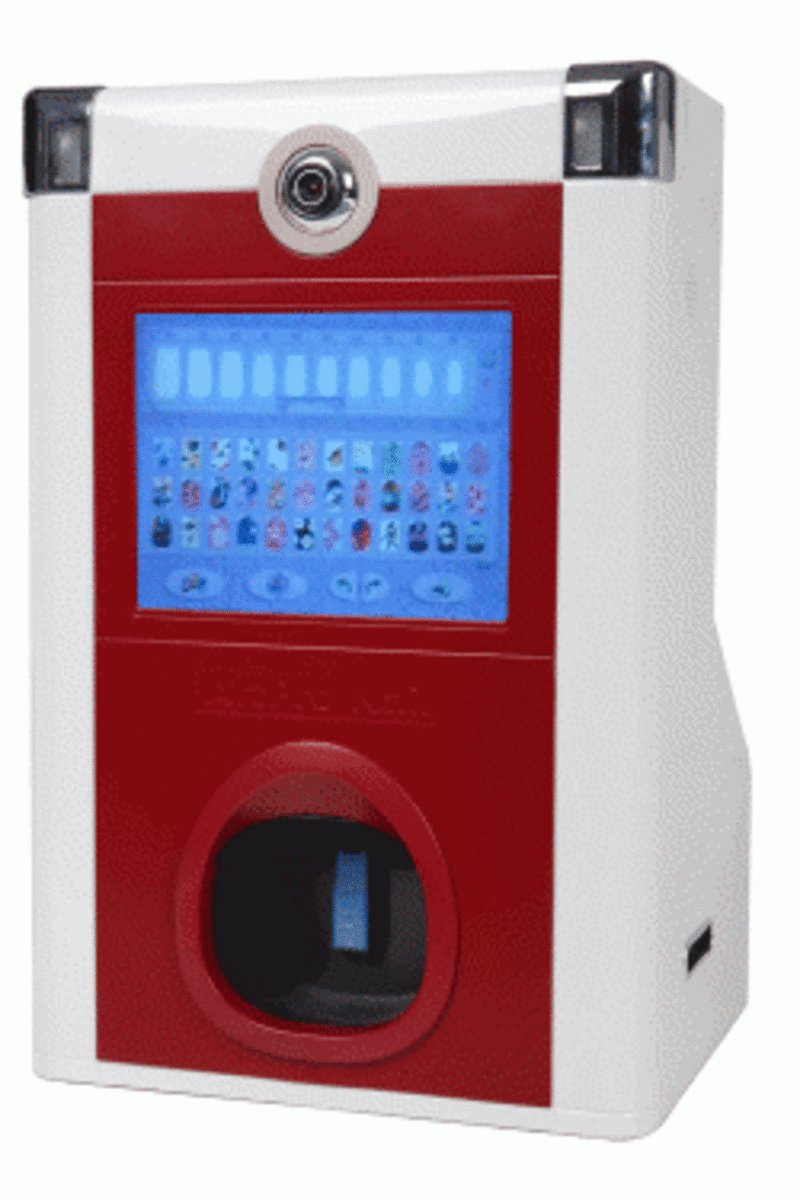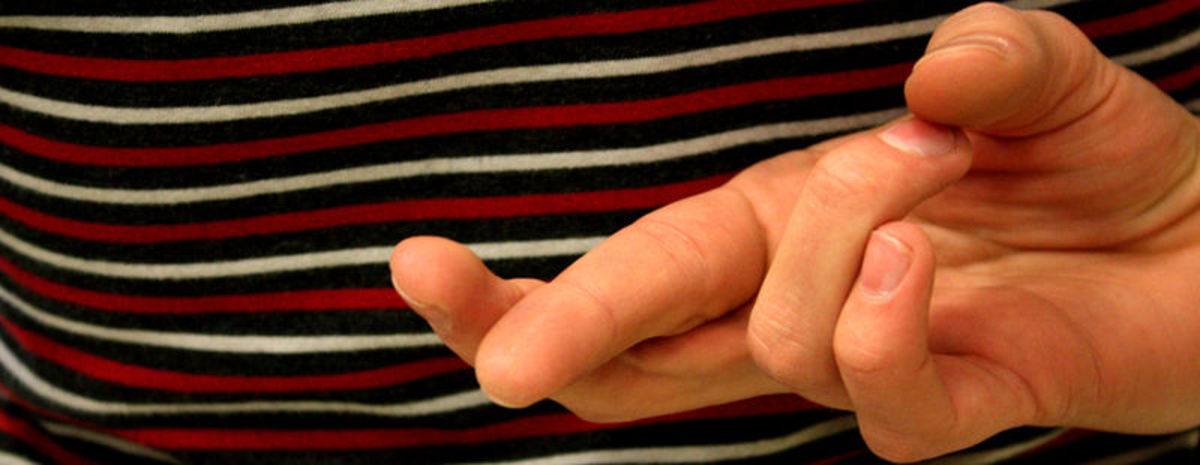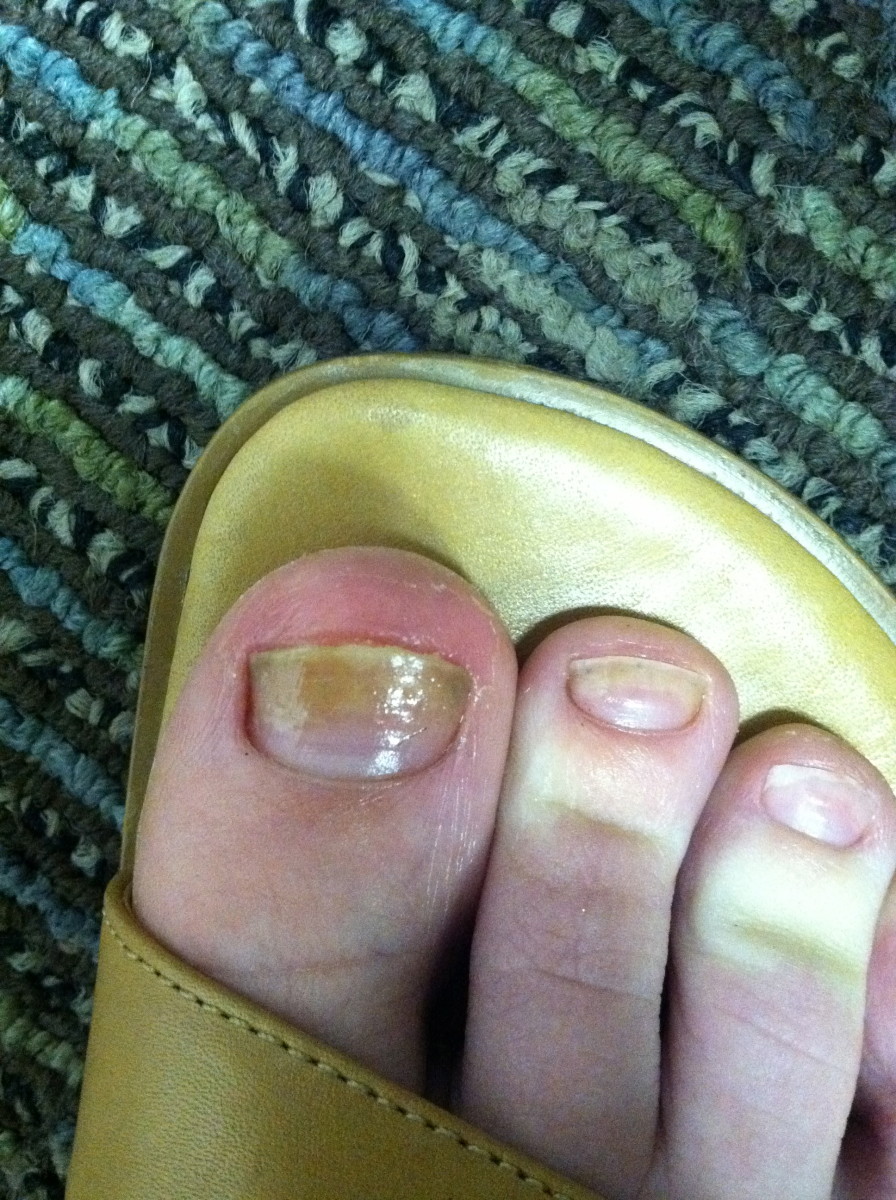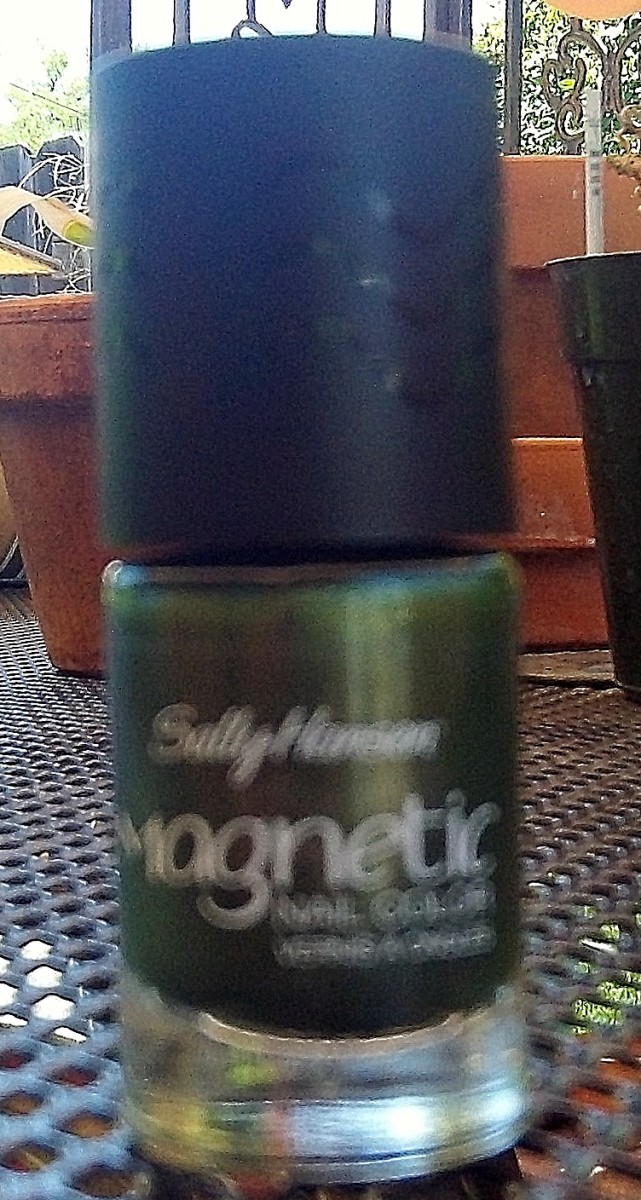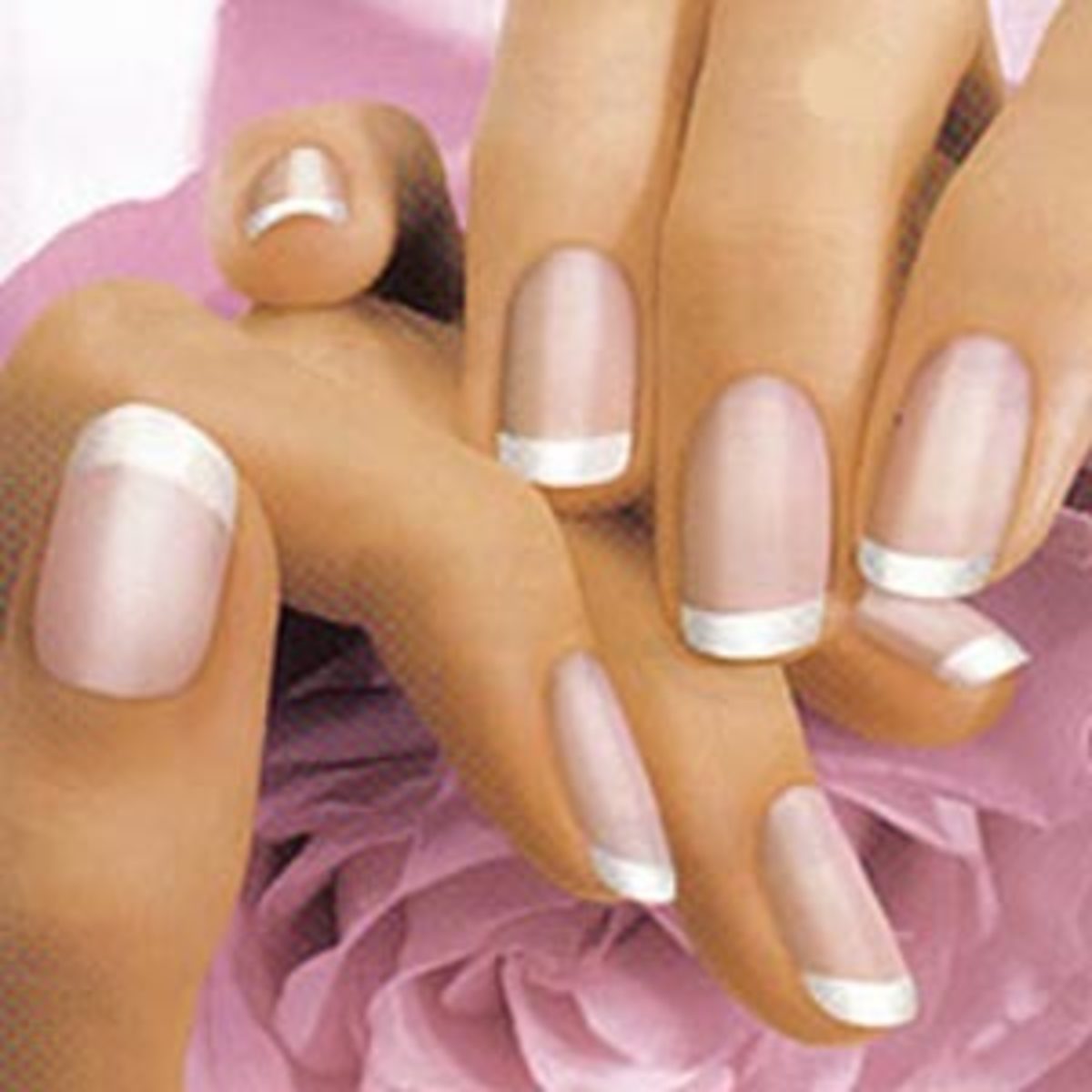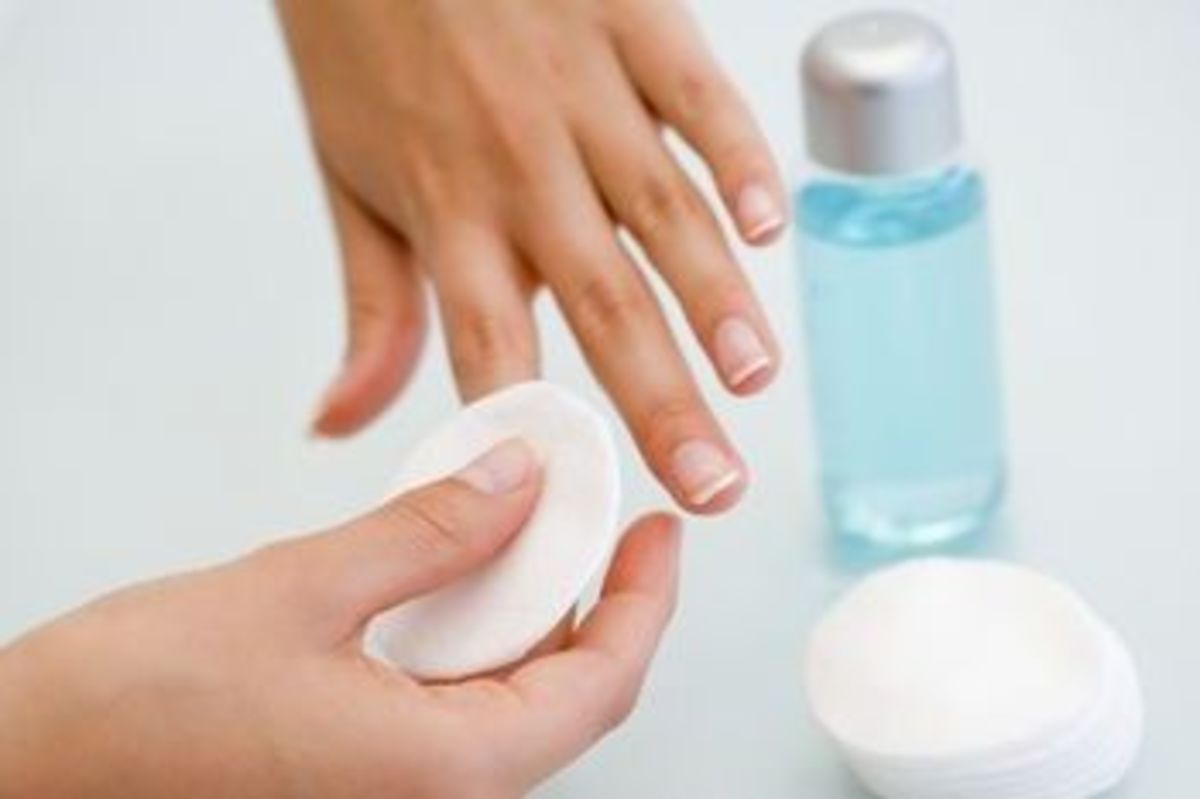Turn Problem Nails Into Healthy Nails
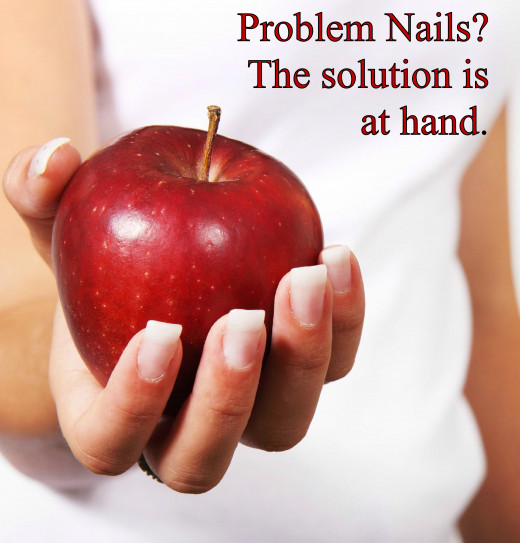
Problem Nails the Root Cause
If you are experiencing problems with your nails, this could be due to several factors. We will look at the symptoms, potential causes, and changes needed to restore the health of your nails.
If the eyes are the windows to the soul, then your nails are the windows to your health. Your nails are a daily visual reminder of your dietary and lifestyle choices.
If you are experiencing problems with your fingernails, the problem might go deeper than just that of your nails. Often a problem with your nails can indicate an underlying health issue or a deficiency in your diet. See your doctor.
Eating Right for Strong Nails
If your nails seem to break easily this could be caused by a deficiency of nutrients in your diet. We all know that calcium is necessary for the health of our teeth and bones but a lack of it can cause problems in our nails also. Obviously without a bone scan you won't know if there is a problem in your bones. However your nails are a constant reminder of our general overall health.
Let's remind ourselves of some good sources of calcium:
-
Milk products including yoghurts and cheese (watch the fat content here)
-
Sardines (382 mgs per 100 grams)
-
Broccoli (47 mgs per 100 grams)
-
Chickpeas(105 mgs per 100 grams)
-
Spinach (99 mg per 100grams)
-
Flaxseeds (linseeds), 88 mgs in a Tablespoon
It isn't just calcium though which is needed to prevent breakages. Foods which are rich in Vitamin C, E and B complex are also necessary as they help stimulate the body to produce keratin. This is vital for stong nails and hair. Useful sources of this vitamins include:
-
Eggs
-
Whole grains
-
Cherries, oranges, strawberries
-
Vegetales with dark green leaves.
Eating a wide variety of healthy unprocessed foods isn't only better for your nails and hair, it's good for your entire body. Check with your doctor to ensure your nail breakages aren't a sign of a thyroid problem, or possibly worms. Taking a multi-vitamin with minerals will ensure any shortfalls in your daily intake of vitamins are met.
Healthy Salad
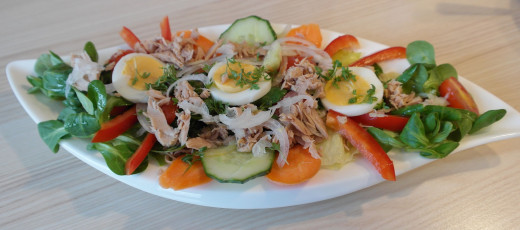
Peeling nails
If your fingernails are peeling or flaking away this could be due to a lack in your diet. Calcium, zinc and selenium help prevent the peeling of nails.
Besides the foods already mentioned for calcium consider adding nuts, beans, oats and lean red meat to your diet.
Yellow or discolored nails
Yellow or discolored nails could be due to wearing nail polish for extended periods of time. It is a good idea to periodically allow your nails to be exposed to daylight and not clad behind a mask of polish.
If you eat an abundance of foods which contain beta-carotene such as carrots, pumpkin or even beets these could give, not only your nails, but also your skin a yellow/orange hue.
Smoking has also been linked to the yellowing of fingers and fingernails.
Some medications such as antibiotics, if taken for an extended time can alter the color of the nails.
Here too this could be an underlying medical reason such as diabetes, kidney or liver problems. Check with your doctor.
Ridges in nails
The ridges in the nails are thought to be hereditary. If you have them, it is likey your mother does as well. Although this makes it difficult to get a smooth finish, especially at home, these should not be rubbed or sanded level. This reduces the strength of your nails and could leave you open to infection.
Using light colored or clear nail polish is preferable to mask the problem.
Choosing a Nail Salon
What is your criteria for choosing a nail salon or manicurist? Do you go to one which has been recommended by a friend or colleague? Perhaps you use the one which is nearest to your home.
When you go do you ask questions? I'm not refering to questions about their prices or availability. There are more important questions which you should be asking.
- Are the implements sterilized between clients?
- What chemicals are being used?
- Do they use products which contain any carcinogens?
What are the hygenie conditions like at the salon you frequent? Don't be afraid to ask questions, those which offer a reputable service will be pleased to answer the questions. Any salons which find your questions offensive are likely not following a good system for controlling the cleanliness and hygenie of their salon. These of course should be avoided.
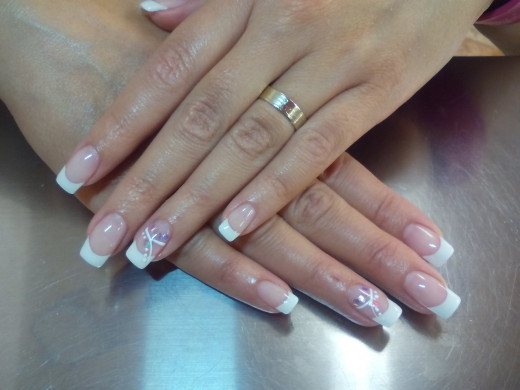
Natural or Artificial?
What are your nails like?
Artificial Nails
There are many types of artificial nails available including gel, acrylic, and silk. People have them done for different reasons. Some have them for a special occassion and others have them continually. As the nail grows out it is necessary to visit your nail technician to have a fill in. This may be every two weeks depending on how fast your nails grow.
During this time small airpockets may form between your natural nail and the artifical nail. It is here where problems can occur as moisture enters and fungus grows. You may not be aware of this until your finger becomes painful when touched. This can begin to rot your nail and leave your body open to bacteria.
The treatment is usually topical and oral. This should be under the care of a qualified health professional. Tea tree oil is often applied to stave off an infection.
Cuticle Care
If it has been some time since you have had your nails done, your cuticles could have grown forward across your nails. When this is pushed back it may look large and unattractive. A good manicurist will apply a cuticle remover which will help. It shouldn't be cut. In time with continued attention, and the use of a good cuticle cream it will soften and reduce.
Things to avoid
With a few dietary changes and careful attention, with a manicurist or at home your nails can become strong and beautiful. There are some things one should avoid such as:
- Gardening without gloves
- Nail biting
- Using your nails as tools
- Smoking
- Picking at your nails
- Harsh chemicals (such as cleaning products) Use gloves
Once you are aware of how mistreated your nails are, you can begin to make changes and in time you will be rewarded with healthier and strong nails.



